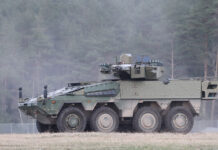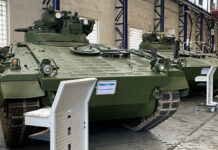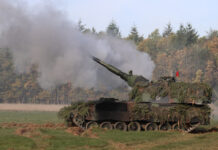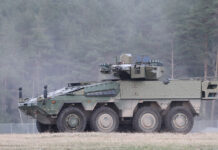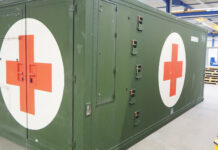The Bundeswehr has placed an order with Rheinmetall MAN Military Vehicles (RMMV) for 367 protected and unprotected logistic vehicles, the company announced on 29 June 2023.
The order is a further call-off from the framework contract for swap-body systems signed in June 2020. In addition to the vehicles, the order includes 1,830 swap-body platforms to serve as interchangeable load carriers. The call-off is worth around EUR 285 M, including value added tax. Delivery of the vehicles is expected to be complete in the third quarter of 2023.
“With the call-off of a further 367 swap-body systems, we’re very pleased to be making an important contribution to the Bundeswehr and the operational readiness of the agreed NATO Division 2025”, Michael Wittlinger, chairman of the board of management of RMMV, was quoted as saying in a company press release. “The new call-off, coming one year after the key handover ceremony in May 2022, is a clear sign that the process of reequipping the German armed forces is making steady headway.”
In June 2020 the German military procurement agency (BAAINBw) concluded a seven-year framework agreement with Rheinmetall for the purchase of up to 4,000 swap-body vehicles, over 600 of which have been delivered to date. The new swap-body trucks join the Unprotected Transport Vehicles (UTFs), expanding the Bundeswehr’s fleet of vehicles from the military HX family. The swap-body system’s principal item of equipment is the hook-loader. Developed by Hiab, it can lift and set down swap-body platforms in the Bundeswehr inventory in virtually any type of terrain, with no need for additional cargo-handling equipment. As an alternative, the vehicles can carry a swap-body platform or a container via a standardised 20 ft ISO interface.
A large share of the swap-body trucks for the Bundeswehr will feature an armoured cab, substantially enhancing crew survivability and sustainment as well as the tactical flexibility of logistic units and formations. Swap-body trucks are used primarily for supplying combat formations with bulk consumables such as ammunition, fuel and water.
Both the swap-body systems and UTFs are based on Rheinmetall’s HX family of vehicles. Designed from the outset for military use, they “assure excellent mobility even in rough terrain” Rheinmetall stated. “Moreover, the widespread presence of the HX family offers major advantages in terms of interoperability and logistics, particularly during multinational deployments,” the company added.
At present, user nations include, among other nations, the United Kingdom, Australia, New Zealand, Norway, Sweden, Austria, Hungary and Denmark.
Peter Felstead






